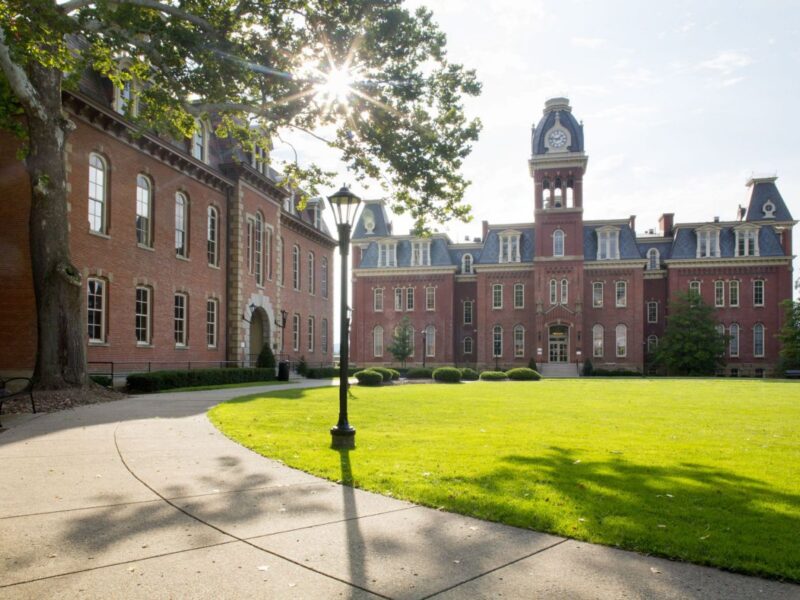
West Virginia University announced Monday that it would suspend in-person classes at its main campus because of concerns over a recent spike in coronavirus infections.
The university said in-person undergraduate classes would be canceled Tuesday at its main campus in Morgantown and then shift to online-only instruction through Sept. 25. The school said graduate-level and professional courses would continue to be offered in person during the same period.
In a statement, university officials said the decision was made “in direct response to a recent increase in positive cases in students on the Morgantown campus, as well as concern for the probability of increased cases following several reports of parties held this holiday weekend where groups should have been in quarantine.”
West Virginia University enrolls nearly 30,000 students across all its campuses and programs. The state had nearly 11,600 confirmed cases of the coronavirus as of Monday afternoon, according to NBC News’ tally.
Full coverage of the coronavirus outbreak
“This pause in face-to-face undergraduate instruction will give us time to monitor the steadily climbing cases of COVID-19,” Dr. Jeffrey Coben, associate vice president of health affairs and dean of the School of Public Health, said in a statement. “There is increasing evidence that crowded indoor gatherings, such as those that occurred over the weekend, can serve as super-spreader events.”
The university said that it suspended 29 students Sunday amid “ongoing COVID-19 investigations” and that “additional sanctions are pending.”
Universities and colleges across the U.S. are wrestling with how to prevent students from spreading the coronavirus and struggling to make the transition to in-person learning during the pandemic.
Corey Farris, the dean of students at WVU, said students who had traveled home for the Labor Day weekend “and have their materials to learn remotely” should stay where they are, while students who did not travel should remain in Morgantown.
Story continues
Dr. Anthony Fauci, the government’s leading infectious disease expert, has urged colleges not to send students home if possible.
“It’s the worst thing you could do,” Fauci, director of the National Institute of Allergy and Infectious Diseases, said last week on NBC’s “TODAY” show.
“When you send them home, particularly when you’re dealing with a university where people come from multiple different locations, you could be seeding the different places with infection,” he said.






Leave a Reply